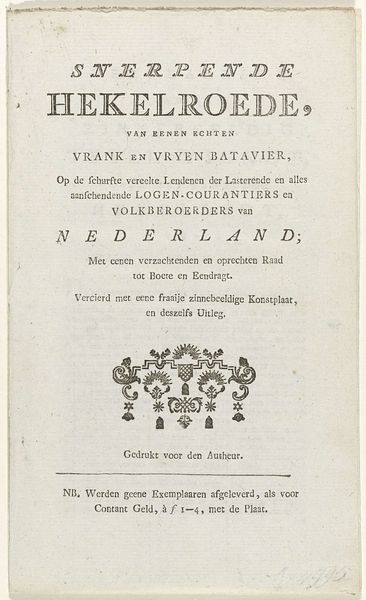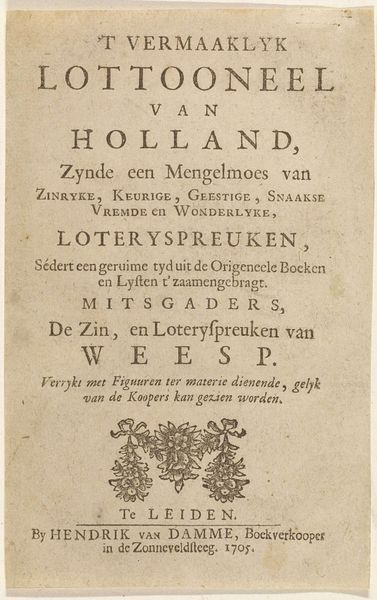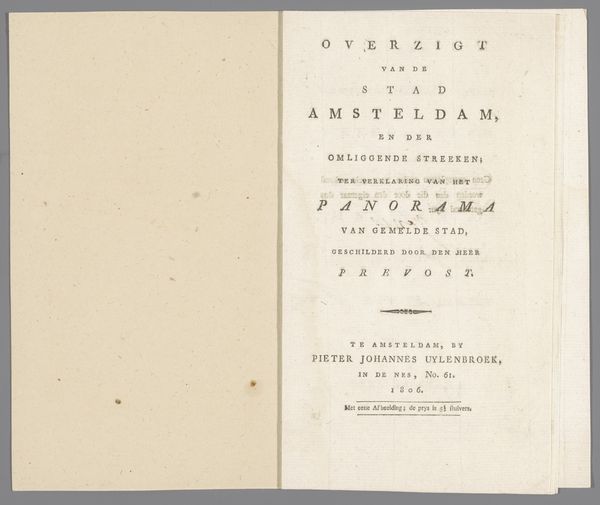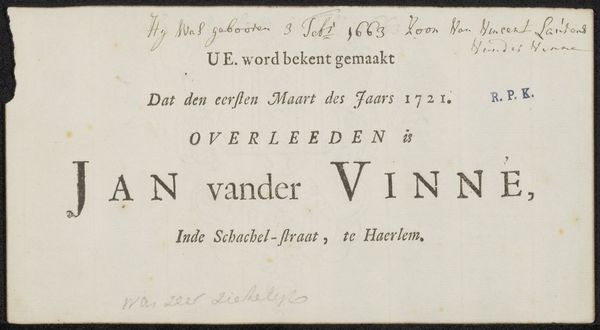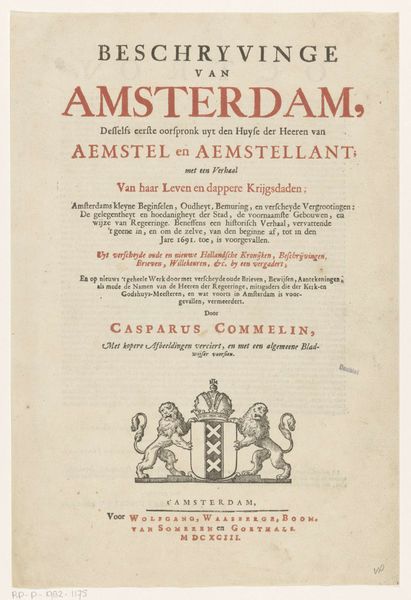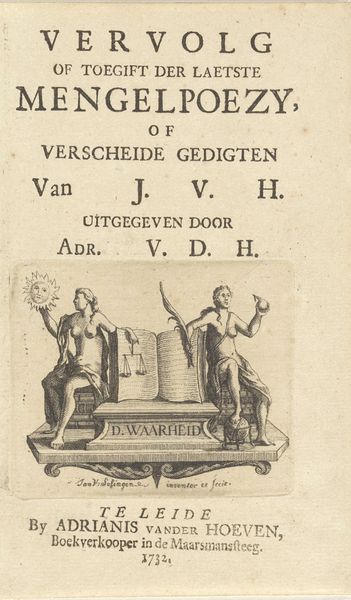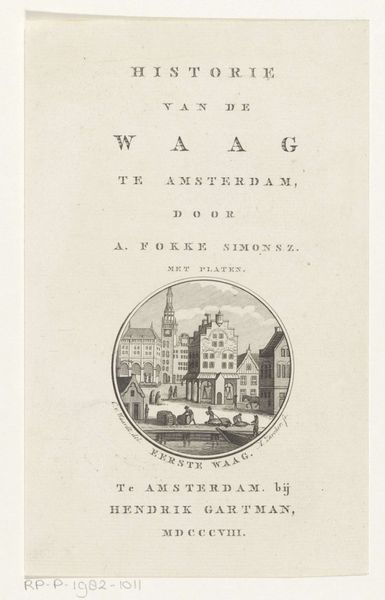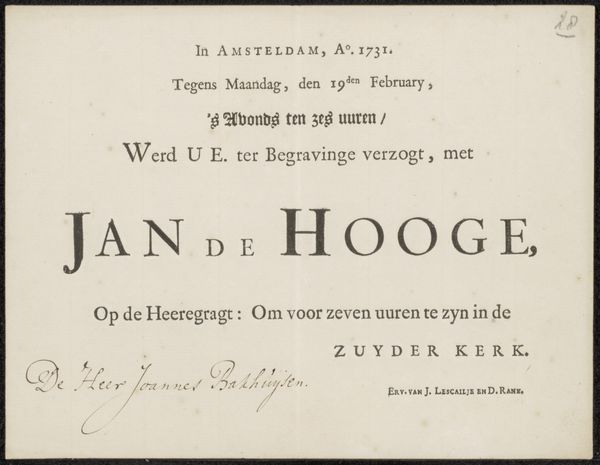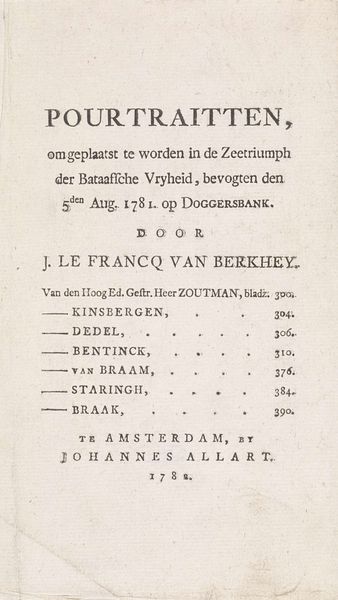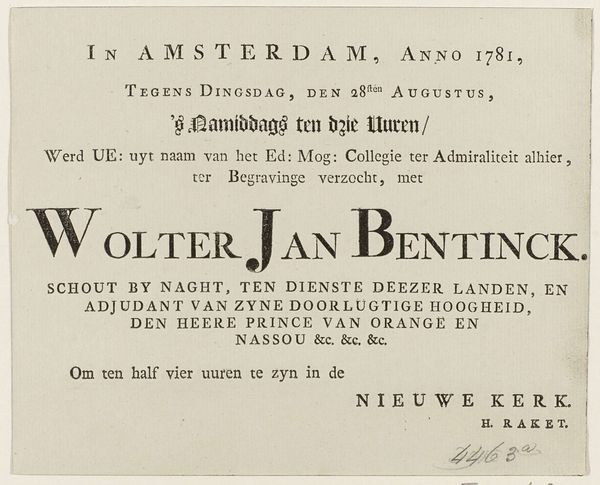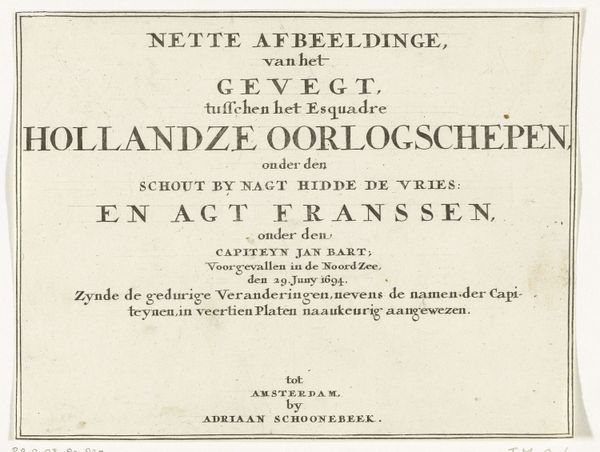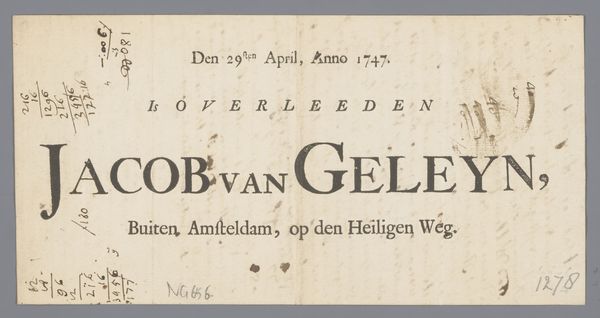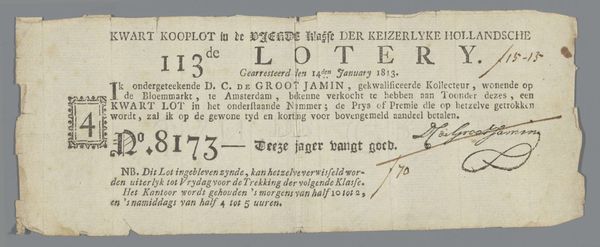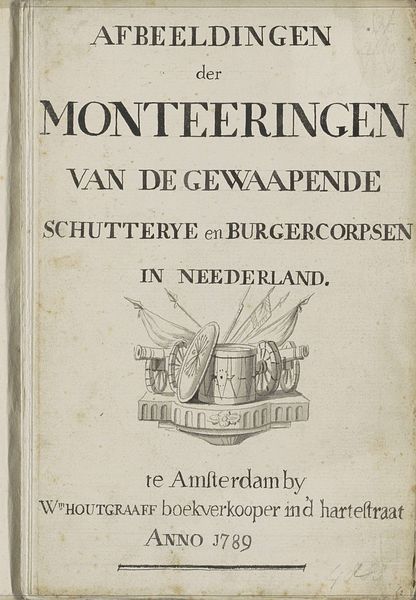
graphic-art, print, textile, paper, typography
#
graphic-art
#
aged paper
#
hand-lettering
#
ink paper printed
# print
#
hand drawn type
#
textile
#
paper
#
personal sketchbook
#
typography
#
hand-drawn typeface
#
fading type
#
thick font
#
sketchbook drawing
#
sketchbook art
Copyright: Rijks Museum: Open Domain
Editor: So, here we have “Overlijdensbericht betreffende Jan Yver,” which translates to "Death Notice Regarding Jan Yver." It’s a printed piece on paper, dating from after 1814. What immediately strikes me is its formal typography and somewhat melancholic air. What do you see in it? Curator: I see a powerful commentary on the nature of remembrance and social standing. Death notices like these weren't just announcements; they were carefully crafted statements about the deceased's life and legacy. Consider the choice of typeface – austere, but meticulously designed. Who was Jan Yver and why did someone commission this specific form of announcement? Editor: The text indicates he was a "Makelaar," a broker, and it lists his address. Does this give you a sense of his position within Amsterdam society? Curator: Precisely. The inclusion of his profession and address places him within a specific socio-economic context. The choice to print this notice suggests a certain level of respectability. It asks us to consider: who gets remembered, and how? Were these announcements common, or a sign of wealth and influence? How might the recipients have reacted to seeing this particular notice displayed or circulated? The date itself, shortly after the Napoleonic era, invites questions about social and political shifts and how they affected individual lives. Editor: It’s amazing how much historical and cultural information is embedded in such a seemingly simple object! Curator: Indeed! By looking beyond the surface, this print invites us to consider larger questions about social structures, historical narratives, and the very act of remembering. What was life actually like in Amsterdam at this time for Jan Yver? Editor: It's fascinating to consider art's ability to carry all this complex information. It gives a whole new perspective on something as straightforward as an announcement. Curator: It really makes you wonder who the 'anonymous' artist or printmaker was.
Comments
No comments
Be the first to comment and join the conversation on the ultimate creative platform.
